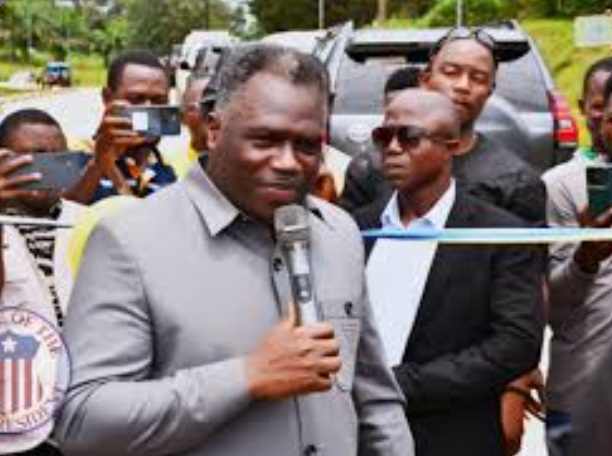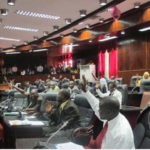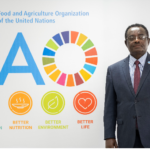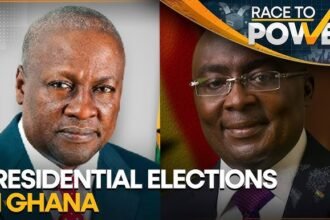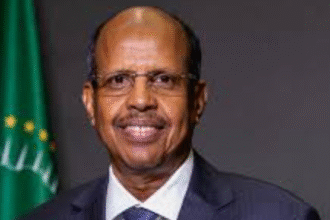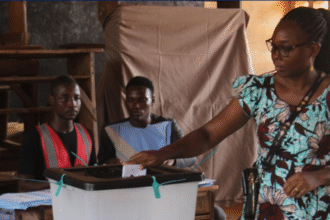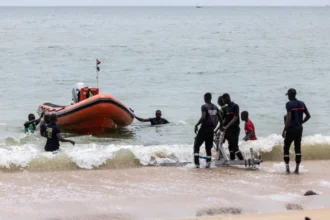By Emmanuel Sikena
Monrovia, Liberia – Thomas S. Kogar, a sitting lawmaker and candidate for the Movement for Democracy and Reconstruction (MDR), has secured a resounding victory in the Nimba County senatorial by-election. Kogar garnered 62,136 votes, representing 52.08% of the total ballots cast from all 736 polling places, decisively defeating his closest rival, independent candidate Edith Gongloe-Weh, who secured 40,506 votes (33.95%).
While Kogar’s name was on the ballot, the election quickly transformed into a critical test of Vice President Jeremiah Koung’s political influence in a post-Prince Johnson era. And by all indications, Koung passed with flying colors.
Koung actively campaigned for Kogar, personally visiting all nine electoral districts within Nimba County. At rallies, he invoked the mentorship and legacy of the influential, and often controversial, Prince Johnson, while simultaneously positioning himself as the leader for a new era.
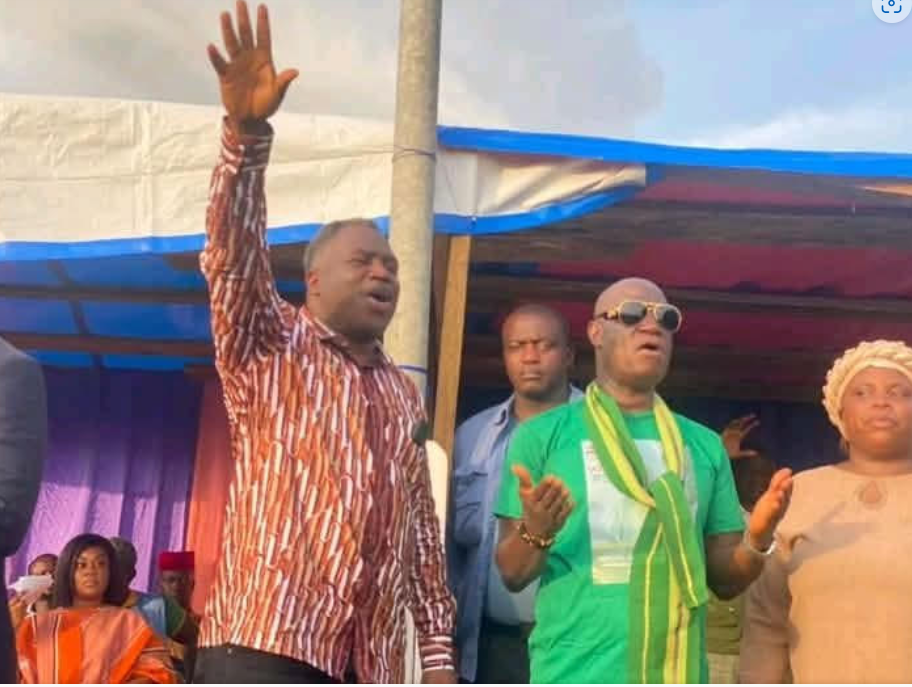
“Some people want to act as if Prince Johnson left no legacy,” Koung told voters in Karnplay. “But Prince trained us. We are here.”
His influence proved undeniable. With seven of Nimba’s nine lawmakers publicly backing Kogar, Koung presented a united front. Political observers noted that Kogar’s campaign appeared to be faltering until Koung’s intervention reshaped its direction and messaging.
The race, however, wasn’t without its challenges to the established order. Representative Musa Hassan Bility of District Seven and his Citizens Movement for Change (CMC) threw their support behind former county inspector Mark Gblinwon, appealing to a new generation of voters seemingly disillusioned by tribal politics and the patronage networks previously synonymous with Johnson’s leadership.
Bility’s rise, particularly in central and lower Nimba, highlighted the evolving political landscape. The by-election became more than just a referendum on personalities; it evolved into a debate about the kind of leadership the county desires going forward.
For Koung, the victory is both deeply personal and strategically significant. Kogar’s win not only secures a crucial Senate seat for the MDR but also signals a clear shift in power, with Koung now firmly holding the reins once gripped by Johnson. This ascendancy has ignited speculation about Koung’s potential presidential ambitions in 2029, following President Boakai’s current term.
“Don’t underestimate him,” wrote Terrence Howard on Facebook. “He understands local politics and elections! A warning for politicians comes 2029!”
However, despite Koung’s demonstrated dominance in Nimba, political analysts caution that this regional strength alone is insufficient to guarantee a successful presidential bid. As one well-regarded Liberian political commentator remarked, “Nimba County alone is not enough to capitulate Koung to the presidency of Liberia, given the complexity of Liberian politics and diaspora impact, as well as American interest. Outside of Nimba, the VP needs to do more outreach and work with experienced and innovative political operatives.”
While the Kogar victory cements Koung’s power base, the road to the presidency in 2029 will require him to broaden his appeal and build a coalition that extends far beyond the borders of Nimba County. The evolving political landscape, as evidenced by the challenge from Bility’s CMC, underscores the need for Koung to adapt and connect with a diverse electorate seeking fresh leadership and a break from the established political order.
With President Joseph Boakai widely expected to forgo a second term in 2029, Vice President Jeremiah Koung is poised to enter the presidential arena, but faces a formidable and diverse field of potential contenders vying for Liberia’s top office. The political landscape is already heating up as prominent figures from across the spectrum position themselves for a potential run.
While Koung, as the incumbent Vice President, may enjoy a certain level of name recognition and political infrastructure, he will likely face stiff competition from established opposition figures and perhaps even a challenge from within the ruling Unity Party.
Among the potential challengers is Alexander Cummings, leader of the Alternative National Congress (ANC). Cummings, a veteran businessman and perennial presidential candidate, has consistently presented himself as a strong alternative to the ruling establishment, focusing on economic development and good governance. His well-organized party and dedicated following positions him as a serious contender.
Adding further complexity to the race is Simeon Freeman, head of the Movement for Democratic Change (MDC). Freeman, an accomplished business leader and private sector employer known for his outspoken and populist rhetoric, has consistently championed the interests of marginalized communities and could energize a significant portion of the electorate.
The potential return of former President George Weah looms large over the political landscape. While currently maintaining a relatively low profile, Weah’s popularity remains considerable, especially among younger voters. Should he decide to re-enter the fray, he could instantly become one of the frontrunners if internal CDC wrangling does not derail his emergence.
Furthermore, speculation is rife regarding the aspirations of Hon. J. Fonanti Koffa, a prominent figure within the Coalition for Democratic Change (CDC). Koffa, known for his legal prowess and political acumen, could potentially galvanize the CDC base and mount a strong challenge.
Beyond these prominent names, several other individuals are rumored to be considering a run, further contributing to the crowded field. These include figures like Leemah Gborwee, John Morlu II, Augustine Kpehe Ngafuan, Mayor Robert Bestman, Prince Moye, Edwin Snowe and Musa Bility. This influx of potential candidates promises a dynamic and competitive election season.
The next several years will be crucial for potential candidates as they seek to build coalitions, develop policy platforms, and connect with the Liberian electorate. The outcome of the 2029 presidential election will undoubtedly have a significant impact on the future trajectory of Liberia.


